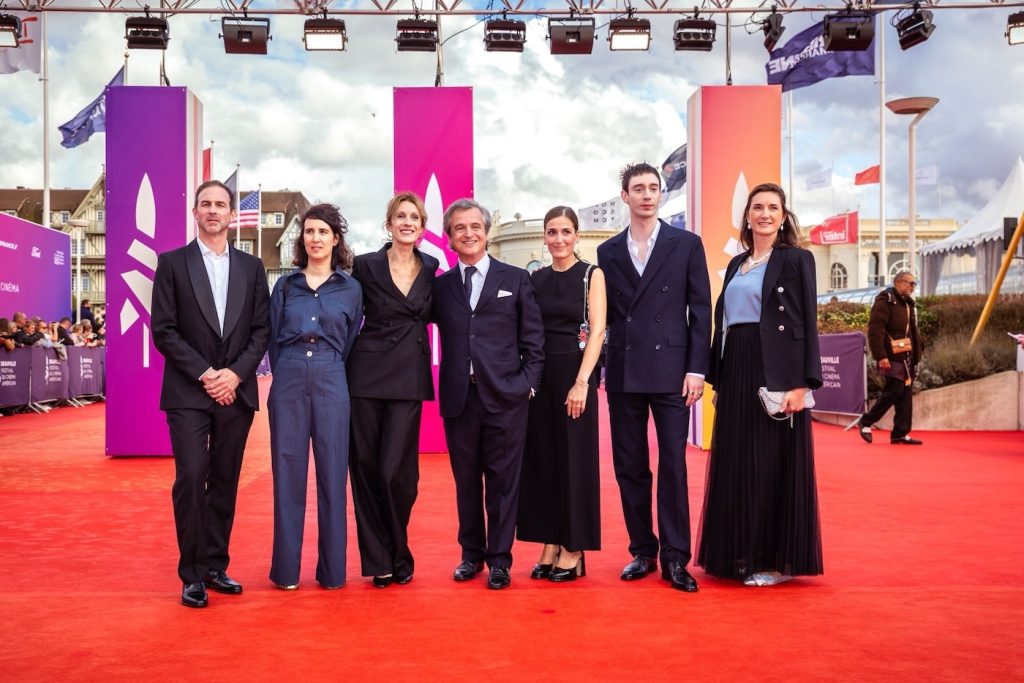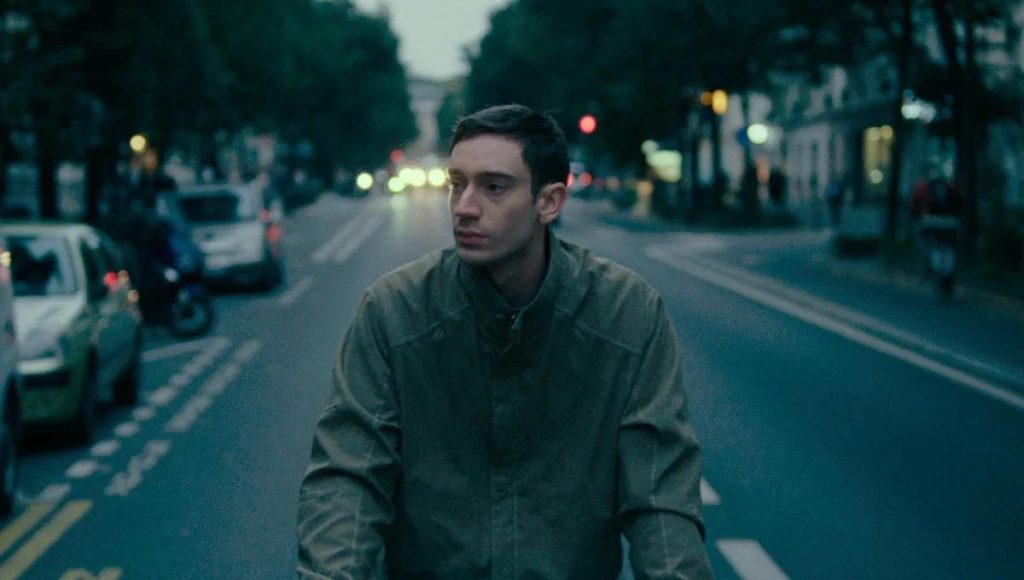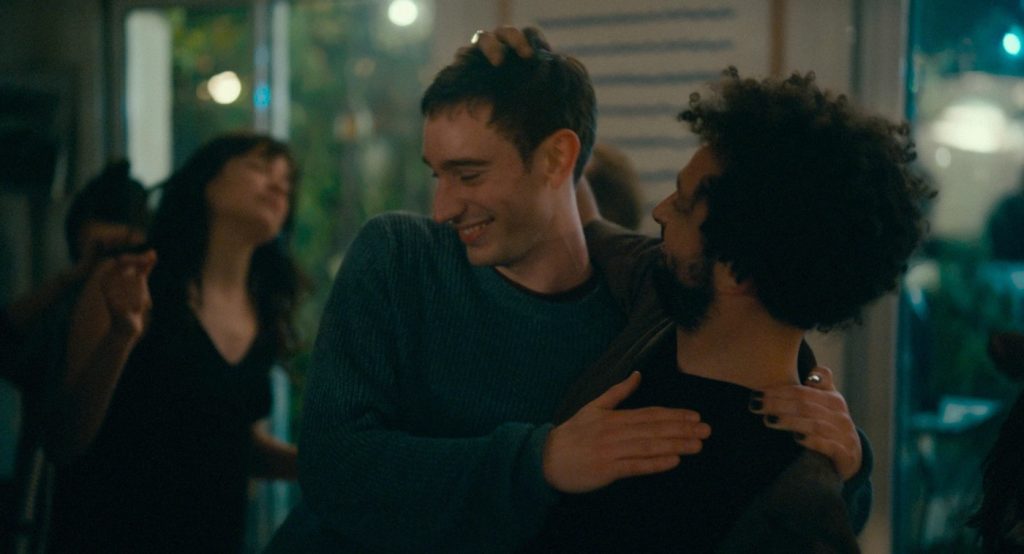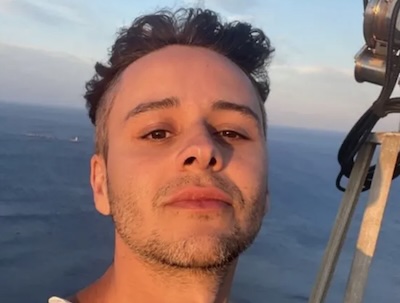How “Nino” Producer Sandra da Fonseca Turned a First Time Director’s Story Into Global Festival Gold
As producer Sandra da Fonseca is telling The Credits about the theatrical release of her newest film, Nino, serendipity strikes. “Oh, I just saw a bus go by with the film’s poster on it,” she says. “That makes me happy — it’s the first one I’ve seen!”
The poster may have been on the bus side, but Nino is gaining acclaim at rocket speed. After premiering at Cannes Critics’ Week in 2025, the film went on to win the MPA-founded d’Ornano-Valenti Award at the Deauville American Film Festival. It has since embarked on what da Fonseca calls a “world tour” of international festivals, from Jakarta to Helsinki, Rio to Rome.
Nino tells the story of a young man whose cancer diagnosis prompts a fragile but tender reconciliation with the people who have crossed his life. Led by a “career-best performance” from Canadian actor Théodore Pellerin (Becoming Karl Lagerfeld), the film is a masterclass in poetic direction and meticulous collaboration with cast and crew.
It’s not surprising that an arthouse, character-led story finds success in France. But with distribution already secured in more than ten territories, Nino is casting light on the global appeal of genuine, relatable human stories.
What makes this achievement even more remarkable is that Nino is the very first feature film by director Pauline Loquès — and she couldn’t have found a better producing partner. Da Fonseca’s first film, À peine j’ouvre les yeux, also had a first-time director, Leyla Bouzid. And in 2017, she accompanied another director, Léonor Serraille, on her debut feature Jeune Femme. On that occasion, they also took home the Deauville Festival’s top prize, as well as the Caméra d’Or at the 2017 Cannes Film Festival.
“The most important part of supporting an emerging filmmaker [is to] believe in the project,” da Fonseca concludes. Indeed, in her case, believing in young women directors has helped bring their voices onto the international stage.
What first attracted you and Blue Monday Productions to Nino?
Pauline had directed a short film, La vie de jeune fille, which aired on Franco-German public broadcaster Arte in 2019. I found the short film very interesting, and that’s how we first met. At that time, she already had an idea for a feature film, and eventually, she started sharing different stages of her writing, like the treatment and several dialogue drafts. Conceptualising the story was what took the longest. At some point, we brought in Maud Ameline as a script consultant, and she helped strengthen the narrative and refine specific elements. Once the script was clearly defined, we decided to truly embark on the search for funding and make this film together.
Congratulations on the film’s success and on the d’Ornano-Valenti prize. Reviews are even comparing it to Agnès Varda’s work. What are the prospects for the film in the next year or so?
Nino has just been released in French cinemas on September 17. So we’ve been preparing for this for many weeks now. After this major milestone in France, the next step will be the film’s screenings at international festivals, which already started at the Toronto International Film Festival. In Helsinki, as well, it was screened just a few days ago. The film is also programmed to screen in Namur, Hamburg, Rio de Janeiro, Bogotá, Poland, Rome, El Gouna, Mexico, Jakarta, Los Angeles, Montreal, Lithuania, and Cairo. And that brings us to December! So, in two months, the film will have played at fifteen festivals. It’s safe to say the film is truly going on a world tour, which is very exciting.

It’s also been sold in a few places, too?
It has been sold in a few territories for theatrical release. Canada — the home country of Théodore Pellerin, the lead actor. Then there are Taiwan, Belgium, Spain, Portugal, India, Brazil, and Indonesia, among others, totaling about ten territories so far. We’re still waiting for something in North America, where sales usually take a bit more time.
Reviews are also calling it Theodore Pellerin’s career-best performance, as well as praising the editing, cinematography, and other creative elements. What were you looking for in cast and crew to tell this story?
We chose the cast meticulously. Especially Théodore, of course, since he is in every shot — but it was also essential to carefully select his scene partners. We didn’t go for the easy option or the most pragmatic or “marketable” option for financiers. That wasn’t our approach at all. It was Youna De Peretti, the casting director I’ve worked with on many films, who introduced us to Théodore’s work. He wasn’t the obvious choice, as he’s based in Canada and doesn’t have a Parisian accent. But it soon became clear that he was exactly the right one.

What about for your crew?
Selecting the right crew members was also crucial. Pauline has real talent; she writes very well and has a very precise sense of direction, despite not having attended a film school. It was important for her to be surrounded by the right people, who could bring ideas while respecting what she wanted to achieve.
How is it producing an arthouse film like Nino in France? Do you see a difference with international co-productions?
There are national and regional subsidies in France, but they’re by no means a given. France has a very supportive system, but it’s also highly selective because there are many films competing for production. So, producing a film by a first-time director who wasn’t especially visible meant we really had some convincing to do. We had to centre the pitch on the artistic aspects of the project. It wasn’t so much about market factors, even though some of the cast are fairly well-known in France, like Jeanne Balibar or William Lebghil.
With international co-productions, you might have two, three, or four countries involved, with multiple producers. I think that makes the process quite different from the work I did for Nino, which was more that of a lead producer: working closely with the director on major decisions, big discussions, strategies, and directions.

And how does the process of bringing it to an international audience, in Europe and beyond, unfold?
For Nino, that started with the Cannes Critics’ Week selection. It really was an extraordinary showcase for the film. The Cannes Film Market is where the main activity happens. The film is shown several times to buyers from all over the world, who purchase it either during the festival itself or in the weeks that follow.
After that, there’s the significant work of submitting the film to international festivals. But it’s true that for a film like this, being or not being at Cannes makes a huge difference. Cannes provides visibility, a spotlight. So we were fortunate to have that platform. For a first feature, it’s an incredibly valuable opportunity.
À peine j’ouvre les yeux was your first feature, and also the first of its director, Leyla Bouzid. Nino is Pauline Loques’ first. What advice did you have for her?
There’s also Jeune Femme by Léonor Serraille, which won the Caméra d’Or at Cannes in 2017. A producer friend recently said, “First-time directors are a lot of work because you’re helping to give birth to a filmmaker.” Of course, the filmmaker would have emerged with or without you. But when you’re the chosen one, there is true partnership in the process. I say that sometimes it’s a bit like a marriage: a film takes years to make, and the producer is in contact with the director almost daily. It’s easy to have faith for a month; it’s much harder to keep it alive over the years. So, the challenge is to stay the course, to believe in the project, and to keep telling the director (and yourself) that we’re on the right path. That, I think, is the most important state of mind to be in when supporting a rising filmmaker. What truly sustains the journey is faith and passion.
Out of 27 d’Ornano-Valenti Awards, 17 have gone to women. You have consistently worked with women filmmakers. What drives that choice, and do you see a difference in the industry today from when you started?
I don’t see it as a militant act. For me, it’s about finding meaning. Since I’ll need to fight to get the film made and bring it to audiences, I need to feel a deep sense of purpose right from the start. You really have to fall in love with the person and with the project to be able to dedicate years of your life to it. And it just so happens that recently, those projects have come from women. I work with women directors because the stories they tell interest me, and I find their approach to telling them to be very powerful. We probably share a common outlook on the world, cinematic references, tastes, and a certain sense of meaning.
We’re seeing a new generation of female directors emerge, young women who are also achieving major international recognition. I feel that in film schools, festivals, and other filmmaking circles, there’s more awareness now. It’s very encouraging and exciting.
Featured image: Theodore Pellerin in Nino. Courtesy Blue Monday Productions/Disney+



